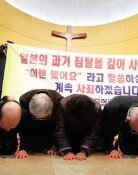[Opinion] Let Us Water the Seeds of Culture
[Opinion] Let Us Water the Seeds of Culture
Posted February. 16, 2002 11:30,
Not too long ago, the British `Financial Times` carried an article on the so-called `Korean Wave` sweeping through Asia, pointing to Korea as the emerging center of new and creative industries in Asia. The journal stated that these creative Korean industries is spreading fast in the area of Asian music and film, and even suggested that Korea is forming a cultural empire.
The article concluded that the Korean cultural industries will take the market that has the most potential China by storm and surpass the Western empire. I recently met a junior friend of mine who lived in Beijing for a while and had the occasion to hear the story about the Korean wave again. It seems that the wave is strong indeed. According to him, Korean TV dramas and films are so popular that they far exceed those of other nations. When I asked why, he answered that it is because they are so entertaining and artistically sophisticated. The foreign journal`s article on a cultural empire did not seem like an exaggeration after all.
The fact that Korean films are as popular as Hollywood blockbusters and Western singers only make up 20 percent of the record sales is evidence that further supports these predictions. When I read these articles, I begin to fill up with the expectation that the powerful wave in music and film may spread to art, theatre, and the art world in general.
Once, a NGO economic research institute advised businesses to learn management strategies from Korean cinema. The Korean film world increased product value through talented filmmakers and producers despite less than perfect conditions. The method that the film world used to raise product value and expand production must be, according to the institute, used in business management as well.
People frequently say that this century will be a century of cultural wars. In the past, nations competed with one another for natural resources and technology. In this century, cultural creativity will be the driving force behind a nation`s competitive edge. In this perspective, it is hard for us not to get excited since we have so much cultural and artistic talent and skill. Although we discovered the latent skill somewhat late in the game, the cultural and artistic sphere may be the single most important area for us and our strongest asset in international competition. When the Korean Wave that is spreading across the world of popular culture begins to reach the high artistic world, Korea may emerge as a new power in the cultural world, drawing upon the foundation of traditional East Asian arts.
The question is how we can mobilize and nurture the skills and knowledge in order to disseminate it to the world. So far, our nation has not supported the art world on the level of national policy. Even if we leave out politics and the economy, one still wishes that the government would invest at least as much in the culture and art world as it does in the sports world.
Of course, the returns from investing in culture and art is not as immediate as other spheres. The long-term benefit, however, that will come as a result of nurturing this seed will be enormous, not only for fostering the nation`s aesthetic sensibility but more so for elevating the nation`s image. The contribution that the world-famous conductor Seiji Ozawa who works in the West makes to the uplifting of Japan`s image in the world is significant.
In this land, the world of arts and culture continues to survive and thrive whether it receives support or not. The idea that arts and culture automatically grows only if no one tramples on it is deeply rooted in our everyday consciousness. Hence, we believe the stories about the master potters of old whose works did not rely on support of the art or the artist. Yet, if we do not invest in the world of arts and culture as we do in other spheres, it will be all the more difficult for the seed to grow and bear as much fruit as it is capable.
It may be the right time to give water and light to the plentiful seeds of artistic talent in this land. We can nurture our youths, then, to grow up to become giants in the art world.
These days, I acutely feel regret that every World Cup stadium did not come with a music performance hall or an art gallery.
Kim Byong-Jong (Dean of Seoul National University College of Fine Arts, Korean Painter)







